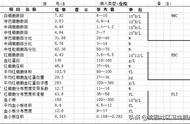
W
1. witness n. 目击者;见证人 v. 看到;目击;见证
(1) He witnessed to ______________ (see)the man enter the room.他证明看到那个人进入房间。
【答案】having seen
(2) Many people _____ the car accident, so it was not difficult to investigate.
A. witnessed B. harnessed C. swallowed D. drugged
【答案】答案 A解析:句意:许多人看到了那起车祸,所以不难调查。witness“目睹”。harness“治理”;swallow“淹没,吞下”;drug“使服毒品”,均不合题意。
(3) After the explosion, the policemen have appealed for ______ to come forward.
A. directors B. views C. applicants D. witnesses
【答案】答案 D解析:爆炸发生后,警察呼吁目击者主动提供信息。witness“目击者”,符合句意。
2. worth a. 价值……的;值……钱的 n. 价值;作用
(1) 用visit的正确形式填空
The factory is worth visiting.
①= The factory is worthy of a _______.
② = The factory is worthy of ___________.
③= The factory is worthy ____________.
④= It’s worthwhile ____________ the factory.
【答案】① visit ② being visited
③ to be visited ④ to visit / visiting
(2) Would you please make up a topic worth ____ in tomorrow’s conference?
A. discussing B. to be discussed C. to discussed D. being discussed
【答案】答案 A解析:worth作后置定语,修饰the topic;worth后常用doing,主动形式表被动。
(3) He said it was ____ impossible to buy the novel which was _____ worth reading.
A. very; very B. very; quite C. much; much D. quite; well
【答案】答案 D解析:quite impossible“完全不可能”;be well worth doing“很值得做……”。
3. wonder v. 想知道;疑惑 n. 惊奇;惊讶;奇观;奇迹
(1) She gazed at the ocean __________ (惊讶地).
(2) It’s hard not to wonder _________ the miracle of a newborn boy.
很难不对新生儿这个奇迹感到惊讶。
【答案】(1) in wonder (2) at
(3) —Excuse me, sir. Would you do me a favor?
—Of course. What is it?
—I _____ if you could tell me how to fill out this form.
A. had wondered B. was wondering C. would wonder D. did wonder
【答案】答案 B解析:此处用wonder的过去进行时表示委婉的请求,并不表示过去。
(4) ______ he plays so well. They have their own private tennis court on which he practises every day.
A. No wonder B. No doubt C. Without exception D. Without question
【答案】答案 A解析:句意:难怪他打得那么好。他们有自己的私人球场,他可以每天都练习。No wonder“难怪”,符合题意。
4. wound n. 伤;伤口 v. 使受伤;伤害
(1) The bus is _________________(蜿蜒前进) up the mountain.
【答案】winding its way
(2) The shot ______ his arm.
A. injured B. hurt C. wounded D. harmed
【答案】答案 C解析:句意:子弹打伤了他的手臂。四个选项中只有wound可以表示用武器造成的皮肤上的伤害。
(3) He received a bad wound ______ the leg.
A. at B. on C. with D. in
【答案】答案 D解析:句意:他腿上受了重伤。in表示“在……部位”。
5. whisper v. 低声说话;低语;私下传说 n. 低语;耳语
(1) They sat at the back of the room, talking __________________(小声地).
【答案】in a whisper
(2) Mum ______ to us, “Be quiet! Your little sister’s sleeping.”
A. whispered B. shouted C. explained D. replied
A解析:句意:妈妈小声对我们说:“安静!你们的小妹妹正在睡觉。”whisper“低语,小声说”,符合题意。
(3) Senior managers have been ______ about more job losses.
A. whisper B. whispers C. whispered D. whispering
【答案】答案D解析:句意:高级经理们一直在私下谈论着还要裁员。have been doing现在完成进行时,表示“从过去开始一直持续到现在的动作”。此题中的whisper意为“私下说……”,为不可数名词。
6.with复合结构
(1) With so many essays ___________ (write),he won’t have time to go shopping this morning.
(2) With all the things she needed _________ (buy),she went home happily.
(3)With so many eyes __________ (stare) at me,I felt nervous and upset.
【答案】(1) to write (2) bought (3) staring
(4)With a lot of difficult problems ,the newlyelected Prime Minister will have a hard time.
A.settled B.settling C.to settle D.being settled
【答案】答案 C
解析 介词with的复合结构。句意为:由于有许多难题要解决,新当选的首相将有一段艰难的时期。由空白处后的句子可知,许多难题还未被解决,故用不定式作宾语补足语,表示将来的动作。
(5) children get older,they become more and more interested in the things around them.
A.While B.When C.As D.With
【答案】答案 C
解析 as可表示两个同步发展的动作或行为,意为“随着”;while表示一段较长的时间或过程内主从句谓语动作同时发生;when作“当……时候”讲,指较短的一段或点时间;with不能引导从句。
7.Would you mind if...? 如果……,你介意吗?
(1)A: Would you mind if I shared the seat with you?
B: Would you mind ______ ______ the seat with you?
(2) Would you mind if I ______ (smoke) here?
【答案】(1) my sharing (2) smoked
(3)—Would you mind if I opened the window?
— .It’s a bit cold.
A.I’d rather you didn’t B.Of course not
C.Not at all D.I’d rather you don’t
【答案】答案 A
解析 由It’s a bit cold可知,应是“介意”,故选A,“我宁愿你不开窗户”。
(4)—Sorry,do you mind if I smoke here?
—Yes, .
A.you could B.go ahead
C.I do D.my pleasure
【答案】答案 C
解析 根据回答部分中的Yes可知,说话者介意对方吸烟,所以用I do。
8.which引导定语从句
(1) He married her,_______ was unexpected.
(2)______ we all know,the sun is round.
(3)Recently I bought an ancient vase _______________ (花瓶价格) was very reasonable.
(4)The book ___________I referred is worth $10.
【答案】(1) which (2) As (3) the price of which (4) to which
(5) is reported in the newspaper,talks between the two countries are making progress.
A.It B.As C.That D.What
【答案】答案 B
解析 as引导定语从句,意思是“正如”。句意为:正如报纸上所报道的那样,两国的会谈取得了进展。
(6)The local government has decided to provide more job opportunities for college graduates, ,in my opinion,will benefit those who are still unemployed.
(2010·马鞍山模拟)
A.what B.that C.where D.which
【答案】答案 D
解析 which引导非限制性定语从句,在从句中作主语。
9.would rather+do(动词原形)
(1) I’d rather _________ (work) in the countryside.
(2) I decided to write rather than ________________(telephone).
(3) I would rather you ____________(come) tomorrow.
【答案】(1) work (2) ( to ) telephone (3) came
(4)It’s the test system, the teachers,that is to blame for the heavy burden of middle school students.
A.other than B.or rather
C.rather than D.more than
【答案】答案 C
解析 other than除了;or rather更确切地说,倒不如说;rather than而不是;more than多于,超过,不仅仅。句意为:是考试制度而不是教师们应对当前中学生课业负担过重的问题负责。
(5)He would rather lectures to the students than to different boring conferences.
A.to give;be invited B.give;be invited
C.giving;be invited D.giving;being invited
【答案】答案 B
解析 would rather后跟动词原形,than后与前面为平行结构。
10.whatever从句
(1)__________________________ (不管他做什么),his parents supported him.
(2)You can choose ____________________(你喜欢的任何东西) in the shop.
【答案】(1) Whatever he did (2) whatever you like
(3) tomorrow,our ship will set sail for Macao.
A.However the weather is like
B.However is the weather like
C.Whatever is the weather like
D.Whatever the weather is like
【答案】答案 D
解析 考查whatever引导让步状语从句。whatever=no matter what修饰名词weather。
(4)The magnificent tower must be saved, the cost!(2011·东城第一学期检测)
A.however B.whichever C.whatever D.wherever
【答案】答案 C
解析 该句为whatever the cost is的省略形式,句中缺少表语且没有一定的选择范围,故不能选B。
11.what引导名词性从句
(1)We should never pretend to know ________ we don’t know.
(2)I want to be liked and loved for _______ I am inside.
(3)Everyone is confused by ________ the professor said.
【答案】(1) what (2) what (3) what
(4)Many young people in the west are expected to leave could be life’s most important decision—marriage—almost entirely up to luck.
A.as B.that
C.which D.what
【答案】答案 D
解析 句意为:据预料,西方许多年轻人把人生最重要的决定,即婚姻问题完全听任于命运的安排。leave后面的 could be life’s most important decision是宾语从句,空白处要作从句的主语,能作主语的是what或which,而which的意思是“哪一个”,不合题意。that仅仅起引导从句的作用,不在从句中作成分。
(5)No one really knows for sure makes a person become righthanded rather than lefthanded.
A.whatever B.who
C.what D.whoever
【答案】答案 C
解析 know后所跟的是宾语从句。句意为:没人能确切地知道是什么使一个人用右手而不用左手。what什么,作从句主语。whatever无论什么;who谁;whoever无论谁,不符合句意。
12.whether...or... 是……还是……
(1)我不知道他们是否要来求我们帮助。
I don’t know _________ they will come for our help ________.
【答案】whether ; or not
(2)—What do you think of Japan’s nuclear disasters?
— they happened or not makes no difference to me.
A.That B.If
C.Whether D.When
【答案】答案 C
解析 下句句意为:无论它们是否发生,对我没有影响。whether...or not,习惯搭配,用来引导名词性从句。
(3) we like a particular piece of news or not,all we have to do is sit in front of the TV set and “let it happen”. (2011·西昌调研)
A.Even if B.Whether
C.However D.No matter
【答案】答案 B
解析 句意为:不管我们喜不喜欢一条新闻,我们所能做的只是坐在电视机前,“让它发生”。whether...or...不管……还是……,引导让步状语从句,符合句意。
13. wish 虚拟语气
(1) I wish I ________ (know) what was going to happen.
(2) She wished she ___________ (be) at home.。
(3)I wish (that) you ______________ (not, smoke) any longer.
【答案】(1) knew (2) had seen (3) wouldn’t smoke
(4)How I wish I my mouth before I shouted at my mum!(2011·恩施一中月考)
A.shut B.have shut
C.had shut D.would shut
【答案】答案 C
解析 由句意可知,此处应表示与过去事实相反的虚拟语气,故用过去完成时形式。
(5)—Can you come to attend our party tonight?
—Sorry,but I do wish I .
A.had B.can
C.will D.could
【答案】答案 D
解析 由语境可知,此处句意为“但我确实希望我能去”,表示与将来事实相反,故选D项。
14.watch out密切注意;当心;提防
(1)The police’s responsibility is to watch ______ the safety of the community.
(2)Watch ______ ______ the cars when you cross the street.
【答案】(1) over (2) out ; for
(2)He minds so much about his position in the office that he any chance to be promoted.
A.watches out B.looks up
C.points out D.watches out for
【答案】答案 D
解析 句意为:他如此在意在办公室的职位,以致于他密切关注任何被提升的机会。watch out for sth.密切注意某事,符合句意。
(3)A policeman was him outside the house.
A.watching out B.watching on
C.watching over D.watching for
【答案】答案 C
解析 watch over监视,符合语境。watch out当心,注意;watch on关注,注意。
15.wipe out消除,彻底消灭;擦净……的内部;使疲惫不堪
(2)Whole villages were __________ by the earthquake.
(2) Please wipe _________ the drawing from the blackboard.
【答案】(1) wiped out (2) off / away
(3)At last she wiped the jar and filled it with clean water.
A.off B.up
C.out D.away
【答案】答案 C
解析 wipe out擦净……的内部。
(4)It has been several months since he the fuel tank.
A.wiped away B.wiped off
C.wiped out D.wiped up
【答案】答案 C
解析 句意为:他好几个月没有擦洗油箱了。wipe out擦净……的内部,符合句意。
16.work out锻炼;理解;弄懂;计算;解决问题;结果是;制定出
(1)We had wanted to finish our task by noon,but it didn’t work out ________ planned.
(2)She is working ___________ a new book.
【答案】(1) as (2) at / on
(3)To deal with the global financial crisis,China has a string of forceful measures over the past months.
A.worked out B.found out
C.turned out D.made out
【答案】答案 A
解析 句意为:为了应对全球经济危机,在过去的几个月里,中国已制定出一系列强有力的措施。work out制定出,符合句意。
(4)In order to lose weight,the young lady prefers to regularly rather than take expensive weightlosing pills.
A.hang out B.work out
C.turn out D.figure out
【答案】答案 B
解析 句意为:为了减肥,这位少妇更喜欢有规律的锻炼,而不是服用昂贵的减肥药。“work out”在此表“锻炼”,符合句意。
17.介词+which+动词不定式
(1)I’m eager to have a car ______ which to drive my son to and from school. 我渴望有一辆车,能够用它接送儿子上学放学。
(2)It was a bad season _______ which to have outings. 这不是一个适合郊游的季节。
(3)She had no time left ______ which to pack her things.她没有时间收拾行李。
【答案】(1) with (2) in (3) in
(4)The boss will choose one of the best workers to go abroad.
A.by whom B.for whom
C.with whom D.on whom
【答案】答案 C
解析 此题属于“介词+whom+动词不定式”作定语的句型,要表达“和某人一块出国”,应用介词with。
(5)Allow me another minute to change my suits.
A.with which B.in which
C.at which D.on which
【答案】答案 B
解析 此题属于“介词+which+动词不定式”作定语的句型,“在一分钟之内”应用介词in。
18.why not...?
(1)So why not _________ (join) us for the experience of a lifetime?
【答案】join
(2)Now that you are free, go to the cinema with me?
A.why don’t B.why not to
C.why do you D.why not
【答案】答案 D
解析 句意为:既然你没什么事做,为什么不跟我一起去看电影呢?提出建议应用Why don’t you do sth.?或Why not do sth.?。
(3)—It’s a long time since I saw my sister.
— her this weekend?
A.Why not visit B.Why not to visit
C.Why not visiting D.Why don’t visit
【答案】答案 A
解析 本题考查表示建议的句式:Why not do sth.?为何不做某事呢?,相当于Why don’t you do sth.?
19. What is...like?
(1)_________ your new apartment _______? 你的新公寓怎么样?
(2)_________ do you ________ the new educational policy? 你觉得新的教育政策怎么样?
(3)_________ you _______ to take a break?你不休息一会儿吗?
【答案】(1) What’s ; like (2) How ; like (3) Would ; like
(4) is it like to lie on the soft beach enjoying the summer sun?
A.How B.What C.That D.Which
【答案】答案 B
解析 What is it like to do...?干……怎么样?
(5)—I wonder you like Bob.
—Selfish but honest.
A.how B.what C.if D.whether
【答案】答案 A
解析 第一句句意为:我想知道你觉得Bob怎样。How do you like sb.?你觉得某人怎样?故选A项。
,













